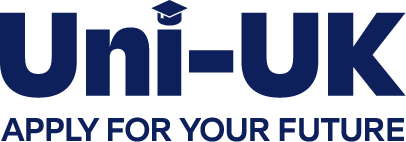How Can Guidance Counselors Help Students Prepare for College and Careers

Key Takeaways
- Guidance counsellors translate institutional requirements into step-by-step plans that keep you on track for graduation and admissions.
- Structured course mapping, study skills instruction, and progress checkpoints strengthen academic performance.
- Personal development sessions build confidence, communication, and leadership skills valued by universities and employers.
- Career exploration activities expose you to labour trends and networking opportunities that refine future goals.
- Early access to counselling services prevents missed deadlines and supports mental health, resulting in smoother transitions to higher education.
Strategic guidance from school counsellors converts academic ambitions into actionable plans that increase admission offers and career readiness.
Understanding the Role of Guidance Counselors in Student Success

"You gain an advocate who understands both academic expectations and personal aspirations when you work with a guidance counsellor."
They translate institutional requirements into practical steps, help you prioritise goals, and create a supportive environment where questions become opportunities for growth. Their holistic approach bridges academic planning with emotional well-being, ensuring you remain focused on long-term outcomes as well as everyday challenges.
Academic Support: How Counselors Assist with Course Planning and Study Skills
A thoughtfully chosen course load sets the foundation for university eligibility and future career paths. Before selecting classes, counsellors review prerequisite chains, graduation requirements, and the admission criteria of target programs. They then connect these details to your strengths, recommending balanced schedules that stretch skills without causing unnecessary stress.
- Four-year roadmap: establishes reach, match, and safety goals for graduation requirements
- Prerequisite alignment: confirms needed subjects for selective programs such as engineering or pharmacy
- Skill-building electives: adds courses that sharpen research, communication, or coding abilities
- Time-management workshops: introduces planners, study groups, and evidence-based learning techniques
- Progress checkpoints: schedules regular reviews to verify marks, adjust workloads, and celebrate improvements
- Peer-tutoring referrals: matches you with trained students for subject-specific support
- Accessible resources: highlights online libraries, writing centres, and assistive technologies
With targeted academic strategies in place, you can focus energy on mastery rather than last-minute fixes, building the confidence required for higher-level courses.
Personal Development: Building Confidence and Social Skills Through Counseling

A secure sense of self is essential when presenting achievements to admissions officers or employers. Counsellors facilitate reflective conversations that uncover passions, values, and areas for improvement. They guide you through goal-setting exercises, encourage leadership roles in clubs, and suggest community service aligned with your interests. As communication skills improve, so does your ability to articulate fit with specific programs, scholarships, or internships.
Career Exploration: Guiding Students Toward Future Opportunities
Understanding labour market trends early allows you to align academic choices with viable professions. Before suggesting pathways, counsellors analyse statistical projections, earnings data, and emerging industries. They then introduce experiential learning options that bring theoretical information to life.
- Interest inventories: connects personality traits with broad career clusters
- Job shadowing: arranges on-site visits to observe day-to-day responsibilities
- Alumni panels: invites recent graduates to discuss degree outcomes and hiring realities
- Labour outlook briefings: reviews government data on growth sectors such as renewable energy
- Portfolio development: advises on showcasing coding projects, design work, or research posters
- Micro-credential recommendations: identifies short courses that complement diploma studies
- Professional association links: provides membership opportunities for mentorship and networking
Each activity refines your goals, making personal statements more authentic and interview answers more specific.
Mental Health Support: Addressing Emotional Well-being in Educational Settings

Stress can undermine even the strongest academic formulas. Counsellors recognise warning signs such as declining attendance or sudden grade drops, then coordinate appropriate interventions. Confidential sessions offer coping strategies that include mindfulness, cognitive reframing, and time-away passes. When additional assistance is required, counselors connect you with psychologists, helplines, or community clinics, reducing barriers that often keep students from seeking help. This proactive support stabilises emotional health, allowing you to engage fully with coursework and extracurricular commitments.
College Admissions Preparation: The Counselor’s Role in Higher Education Readiness
Deadline mapping and requirement tracking
Clear timelines reduce last-minute errors. Counsellors
build application calendars that list transcript requests, language tests, and scholarship due dates. Visual overviews help you allocate study periods for SAT, ACT, or IELTS assessments without sacrificing school performance.
Personal statement coaching
Authentic narratives resonate with admissions readers. Counsellors teach story framing that links formative experiences to program themes, ensuring you answer prompts directly while showcasing unique perspectives. Draft reviews focus on clarity, Canadian spelling consistency, and measurable impact.
Reference letter coordination
Strong endorsements add credibility. Counsellors advise on selecting teachers who can attest to both academic rigour and leadership traits. They also provide guideline sheets that summarise projects and volunteer roles, enabling referees to write detailed examples rather than general praise.
Collaborative Efforts: How Counselors Work with Teachers and Parents

Student success improves when adults share information and expectations.
- Progress updates: teachers provide grade trends, counsellors interpret implications
- Support plans: parents receive study strategies, ensuring home routines reinforce school goals
- Workshop nights: joint presentations clarify program prerequisites and funding options
- Resource pooling: educators contribute subject-specific materials, reducing duplication
- Crisis protocols: staff coordinate swift responses to mental health concerns
- Career fairs: families, teachers, and counsellors host employers and alumni for networking
- Feedback loops: surveys capture parent and student insights, refining future services
This teamwork cultivates a consistent message that empowers you to take informed action.
"Authentic narratives resonate with admissions readers.” — Insert at the start of the personal statement coaching subsection"
University Guidance Counselors: Supporting Students in Higher Education Institutions
Once you arrive on campus, the university guidance counselor becomes a critical link between academic departments, wellness centres, and career offices. They interpret complex policy documents into plain language, help you change majors without losing credits, and connect you with research supervisors or co-op coordinators. Their presence ensures continuity of care, so the transition from secondary school to university feels strategic rather than overwhelming.
Accessing Counseling Services: What Students Need to Know

Confusion about how to start often discourages students from seeking help. Understanding several simple entry points prevents delays.
- Self-referral forms: submit online requests that outline immediate needs and preferred meeting times
- Walk-in hours: visit during designated slots for quick questions about schedules or stress management
- Teacher referrals: instructors flag concerns, prompting counsellors to reach out discreetly
- Parent communication: guardians call or email to arrange conferences when academic struggles emerge
- Community hotlines: phone lines offer after-hours advice, ensuring support beyond school walls
- Digital platforms: secure chat tools allow you to message counsellors between sessions
- Peer ambassadors: trained students share service information during orientation events
Knowing these options makes it easier to say, “How can a guidance counselor help me?” and receive answers without delay.
University applications extend far beyond paperwork—they represent the gateway to your academic future.
Uni-UK simplifies every step with expert, no-cost support, ensuring you secure the ideal UK university placement.
FAQs
How can guidance counselors help students choose the right courses?
They evaluate program prerequisites, long-term goals, and workload tolerance before recommending classes that satisfy graduation criteria and enhance admission profiles.
How can a guidance counselor help me manage stress during application season?
Counsellors teach evidence-based coping strategies, coordinate peer support, and, when needed, refer you to licensed professionals, ensuring emotional stability throughout deadlines.
When should I first meet a university guidance counselor?
Connecting in first year allows early exploration of majors, credit transfer policies, and experiential learning, reducing the risk of delayed graduation or unnecessary fees.
What documents should I prepare before a counselling session?
Bring unofficial transcripts, extracurricular logs, scholarship essay drafts, and a list of potential programs to maximise the session’s productivity.
How often should students review their academic plans with counsellors?
Check-ins each term maintain alignment between evolving interests, grade performance, and external admission requirements, preventing last-minute schedule conflicts.
Blog






